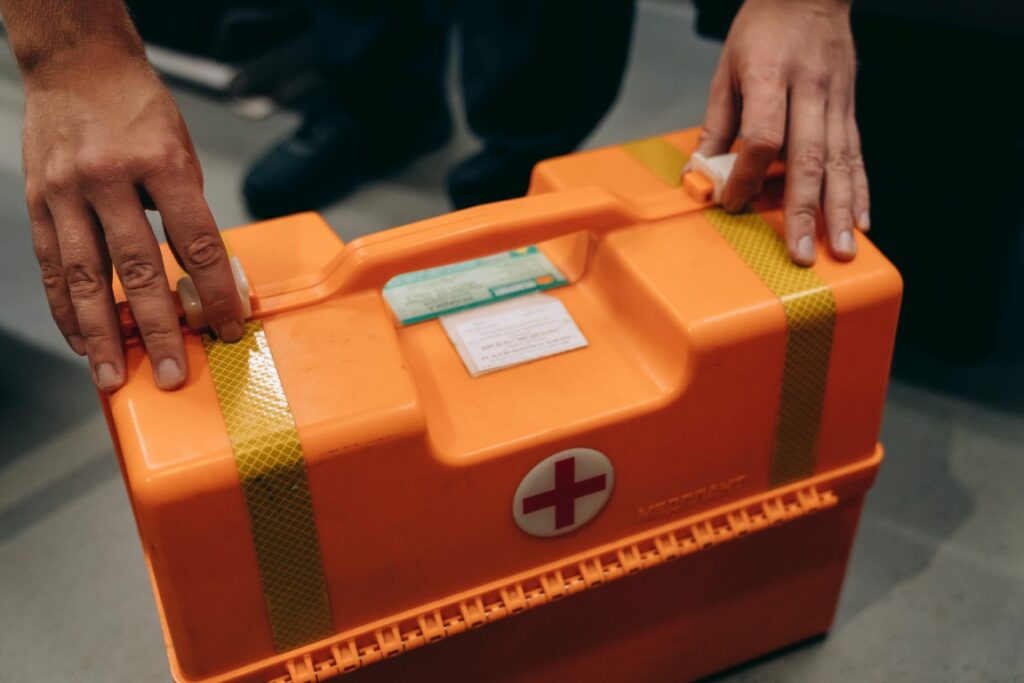
Handling emergencies during a school camping trip can be a daunting task, but with proper planning and preparation, you can ensure the safety of your students and staff. In this blog post, we will discuss some key strategies for handling emergencies during a school camping trip, including what to do in case of an injury, a medical emergency, or a natural disaster. By following these guidelines, you can help to minimize the risks and ensure a smooth and successful trip for all involved.
- Create a detailed emergency plan
Before you even set foot on the campsite, it is crucial to have a clear and comprehensive emergency plan in place. This should include the contact information for local emergency services, such as the police, fire department, and ambulance service, as well as the location of the nearest hospital. It should also include a list of all students and staff, along with any relevant medical information, such as allergies or pre-existing conditions.
In addition to this, you should also identify a few key individuals who will be responsible for coordinating the emergency response and communicating with local authorities. This could include the trip leader, a teacher, or a designated first responder.
- Pack an emergency kit
In the event of an emergency, having the right supplies on hand can make all the difference. A well-stocked emergency kit should include:
- First aid supplies: bandages, gauze, adhesive tape, scissors, tweezers, antiseptic wipes, and pain medication.
- Communication equipment: a portable radio or satellite phone, along with extra batteries.
- Navigation tools: a map of the area, a compass, and a flashlight.
- Emergency shelter: a tent, tarps, or other materials that can be used to create a temporary shelter.
- Water and food: at least a three-day supply of non-perishable food and water.
- Personal items: a change of clothes, a hat, gloves, and other items that can help to keep you warm and dry.
- Know how to respond to injuries
Injuries are a common occurrence during a camping trip, whether it’s a minor scrape or a more serious injury. It’s important to be prepared to handle these situations, and to know when to seek medical attention.
If a student or staff member is injured, the first step is to assess the severity of the injury. If it is a minor injury, such as a cut or scrape, you can clean the wound with antiseptic and apply a bandage. If the injury is more serious, or if the person is unconscious, you should call for medical assistance and take steps to stabilize the person until help arrives.
- Know how to respond to a medical emergency
In the event of a medical emergency, such as a heart attack or stroke, time is of the essence. It’s important to remain calm and to follow these steps:
- Call for medical assistance by dial 911 or your local emergency number, and provide the operator with the location and a description of the symptoms.
- Administer first aid, If you are trained in CPR or first aid, use your skills to help the person until medical help arrives.
- Stay with the person until medical help arrives, and provide support and reassurance as needed.
- Know how to respond to natural disasters
During a school camping trip, you may also need to prepare for the possibility of a natural disaster, such as a tornado, hurricane, or earthquake. In these situations, it’s important to stay informed and to follow the guidelines provided by local authorities.
- Have a designated meeting place
In the event of an emergency, it’s important to have a designated meeting place where everyone can gather and be accounted for. This could be a specific location on the campsite, or a nearby building or shelter. Make sure that everyone is aware of the designated meeting place and knows how to get there.
- Stay informed about the weather
The weather can be unpredictable, especially when you’re out in the wilderness. It’s important to stay informed about the weather forecast and to be prepared for changes in the weather. This could mean packing extra layers of clothing, having a plan in place in case of extreme weather, or modifying your activities to stay safe.
- Take care of yourself
As the trip leader or teacher, it’s important to remember to take care of yourself as well. This means staying hydrated, getting enough rest, and taking breaks when needed. By taking care of yourself, you’ll be better able to handle any emergencies that may arise.
- Practice emergency drills
Before the trip, it’s a good idea to practice emergency drills with your students and staff. This could include a fire drill, an earthquake drill, or a drill for any other type of emergency. Practicing these drills can help everyone to feel more prepared and comfortable in the event of an actual emergency.
- Don’t be afraid to ask for help
If you’re not sure how to handle a particular emergency, don’t be afraid to ask for help. Local authorities and emergency services are there to assist you and your students, and they have the training and expertise to handle a wide range of emergencies. Don’t hesitate to reach out to them if you need assistance.
By following these guidelines, you can help to minimize the risks and ensure a safe and successful school camping trip for everyone involved. With proper planning and preparation, you can handle any emergencies that may arise and keep your students and staff safe.
Leave a Reply